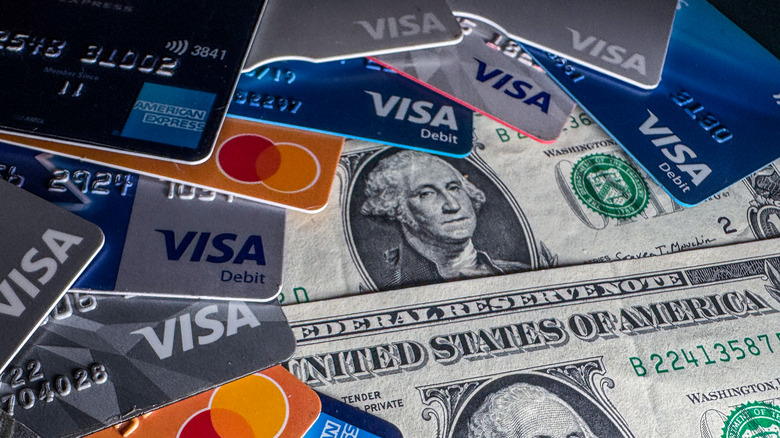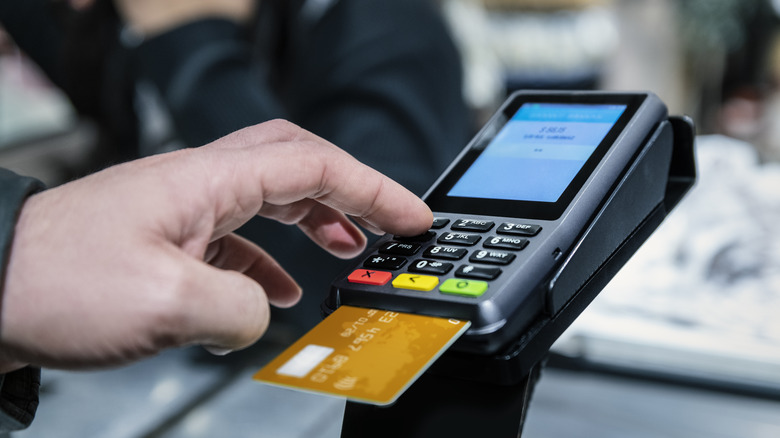Which Is Cheaper: Using A Credit Card Or A Debit Card For Everyday Purchases
Whether you exclusively use your credit card or are devoted to your debit card, there can be some important things to know about the best ways to use each. From the ability to regularly and easily check your account balance to the potential for cashback and rewards, each card type offers pros and cons that consumers should consider when deciding which card type to use for certain purchases. Plus, potential safety and fraud concerns should also be a factor when deciding on what type of card to use when making purchases (especially if you are traveling).
While a general rule of thumb is to use your credit card for larger purchases, you might find that using a credit card for smaller purchases could end up saving you money in the long run. However, perhaps the most important consideration to take into account when deciding the best way to make your purchases is what works best for your specific spending habits. Rod Griffin, an Experian senior director, explained to CNBC Select that, "credit cards aren't for everyone." He went on to elaborate, "It really does depend on your personality, the way that you manage money, your relationship with money and your ability to resist impulse buys." Depending on your income, budget, and individual spending style you might find that you prefer using cash, debit, or credit cards more when making purchases. Let's dive into some of the pros and cons and different card types, and how you could get more bang for your buck depending on the card you use.
Tracking your expenses
A benefit (or downside, depending on how you look at it) of using cash or a debit card is that you can't spend more than you actually have in your account. This can be especially useful for those on fixed incomes or those who want to stay within their budgets. Having your expenses directly tied to your actual account amount (and all within one account) can also make it particularly easy to track your spending every month. Not only can you ensure you have an up-to-date account of how much money you have to spend but it can be easier to see spending patterns and errant expenses when you have a singular account to monitor.
On the flip side, since credit card statements are generally monthly, it can be much easier to rack up a larger bill without realizing it. Without regularly checking your separate credit card account and comparing it to your bank balance, the chances are higher that you could end up miscalculating your budget. Plus, using your credit card more regularly can affect your credit utilization ratio. As Rod Griffin explained to CNBC Select, "If, as a result of using your credit card to make purchases, you have a high utilization rate, that can drag down your credit score and that can be important in longer term decisions." Plus, if you find your bills outpacing your bank account long-term you could also be facing high interest rates on your rollover balance which will make it even harder to get out of debt.
Credit card perks and rewards
However, while credit cards can definitely have some drawbacks when it comes to tracking your expenses, the exact kind of card you have could still make it a better choice for everyday purchases than a debit card. Remember that it is still incredibly important to not spend outside of your means, and to keep good track of your monthly expenses when using a credit card. With that in mind, there are some significant financial perks to using a credit card for smaller purchases. Specifically, credit cards that offer cash back rewards or points for purchases can help you get more out of your everyday purchases. Whether you have a card that earns air miles, Amazon credit, or even just cash to use towards your balance, certain credit cards could be worth using more regularly on everyday purchases.
It's worth noting that there are some important dark sides of credit card rewards to be aware of. Namely that these perks are generally meant to incentivize spending, and thereby increase the potential that consumers will carry a balance from month to month. Ultimately, credit card companies hope to earn as much money from their customers as possible and carrying a balance is a key part of their profitability. According to data from the Federal Reserve Bank of New York, as of the third quarter of 2024 U.S. household credit card balances increased by $24 billion to hit a whopping $1.17 trillion. To make matters worse, delinquency rates have also been increasing across the country.


